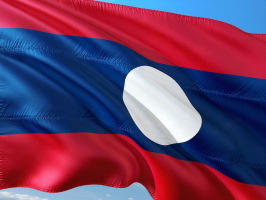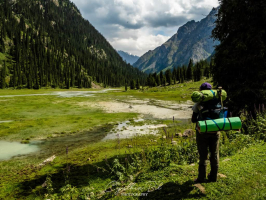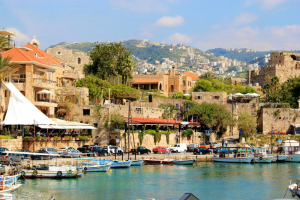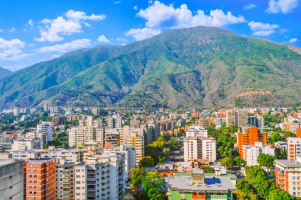Top 11 Things About Jordan You Should Know
Jordan, a little country with a large heart, ancient history and culture, and multiple Unesco World Heritage sites, provides unlimited options for adventure. ... read more...From afar, it is sometimes inappropriately grouped in with regional strife and, as a result, is neglected by fearful tourists. However, it is a welcome and quiet site that should not be missed. Don’t hesitate to book your trip, pack your bags and check out Things About Jordan You Should Know before your journey.
-
Jordan is gradually becoming a modern cultural centre, and its more trendy dress trends reflect this. However, flexibility in terms of dress code will always be restricted; miscommunication over what is suitable to wear is the most common source of conflict between residents and visitors. Women should dress loosely and avoid wearing anything revealing in order to respect cultural customs. It is crucial for guys to remember that walking around topless is not acceptable.
Men should wear pants when visiting Jordan in accordance with Jordan's respectful dress code. Whether in Amman, seeing Petra, or walking across the desert, males should avoid wearing shorts since it is considered impolite. Even in hot weather, light linen or cotton pants may keep you cool and comfortable; just be sure to carry trousers made of weather-appropriate fabrics. Tops that do not cover the shoulders are considered undergarments in Jordan. This regulation applies to both men and women, therefore wear shirts and t-shirts that cover the top of the arms at all times. With this in mind, it should come as no surprise that wearing no top in public, no matter how hot the weather, is utterly inappropriate.
Women's clothing regulations are slightly harsher than men's, like in most adjacent nations. Women should avoid exposing their bodies as much as possible in order to respect Jordanian culture and way of life. Female tourists should dress loosely and cover their arms, legs, breast, and nape of the neck to prevent unwanted attention. Wearing T-shirts, shorts, and leggings might be considered sexual apparel. Many Jordanian women wear headscarves, and those who do not generally have their hair pulled back. Female travellers should observe this protocol as well and pull their hair down.
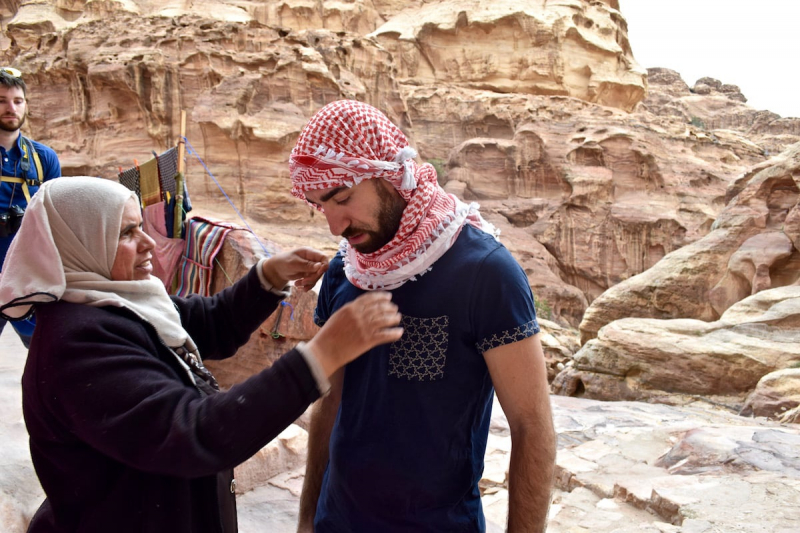
wanderlustchloe.com 
wanderlustchloe.com -
Always pack a scarf is one of the Things About Jordan You Should Know. A scarf can be useful for various purposes outside of dress standards. On a hot day, it's a good idea to cover your head to avoid heatstroke—especially if you're visiting a desert tourist attraction like Wadi Rum or Petra. When visiting a religious building, such as the magnificent King Hussein Bin Talal Mosque, female tourists may need to wear a scarf.
To engage with some degree of mutual respect as a western woman in Jordanian society, you'll probably have to go to even greater measures than males to adapt your typical style of dress, however, it is feasible to do so without losing your independence and uniqueness too much. Loose-fitting, opaque garments that hide your legs, arms, and breasts will let you interact normally with local males. Shorts, as well as Lycra leggings, seem overtly provocative and sexual on women. T-shirts should be avoided as well. Because the nape of the neck is regarded as particularly sexy, it is advisable to conceal it with a high collar or a thin cotton scarf.
Another area where conservatism might help deflect unwanted attention is hair. Jordanian women who don't wear a hijab seldom allow their long hair to fall past their shoulders; you should do the same. Some people believe that women with damp hair advertise their sexual availability, therefore you may want to dry your hair before heading out. If you have blonde hair, you must sadly accept a little more curious attention — at least while walking in more conservative locations.
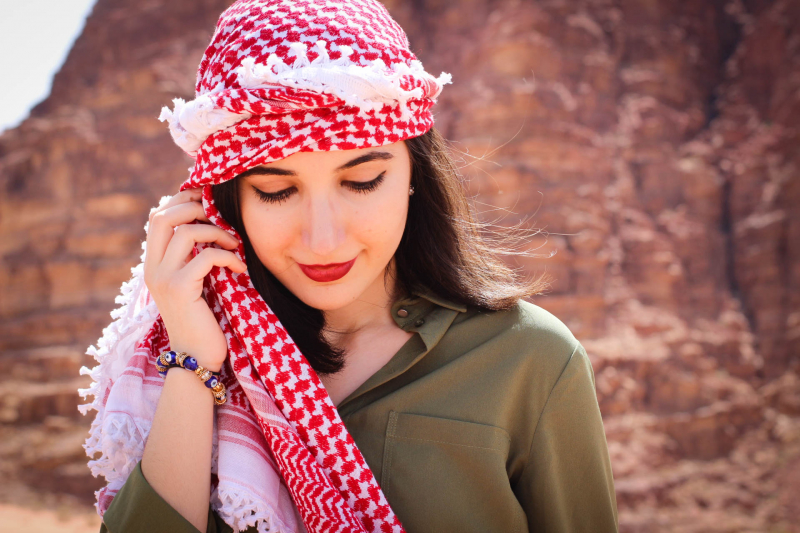
keepingitkrischic.com 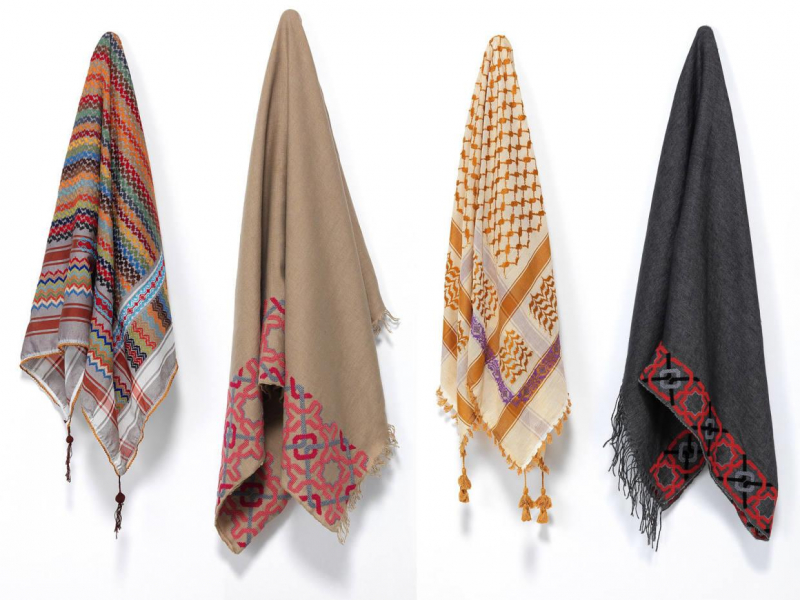
keepingitkrischic.com -
In Jordanian culture, vegetarianism is commonly accepted and catered to, that is one of the Things About Jordan You Should Know.. Those who do not eat meat, on the other hand, will have fewer options when it comes to traditional food. Almost all Jordanian cuisines contain some form of animal product. So, if you're asked to lunch, be prepared to gaze down at a table full of meat dishes, and be aware that showing disdain for food is considered quite impolite in Jordan.
In Jordan, vegetarians are in luck: it is relatively simple to live without eating meat. Although the notion of vegetarianism is not well recognized (Jordanians adore their meat), the culinary culture naturally relies on a lot of fresh vegetables, beans, and pulses. There are several salads to select from, as well as many vegetable-based dips to scoop up with flatbread and excellent, affordable treats like falafel. Everything has a distinct flavor, from sour to spicy, with olive oil, lemon, garlic, parsley, and mint prominently featured.
engagingcultures.com 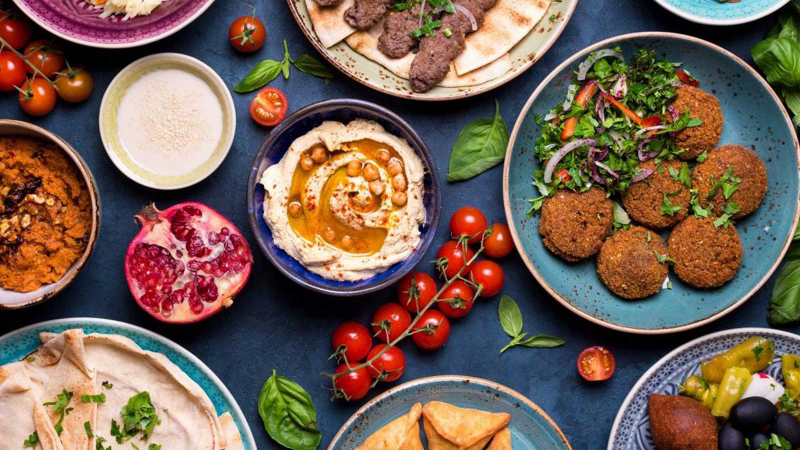
engagingcultures.com -
In Jordan, table manners are relaxed. Eating with your hands is a typical practice that also shows that you are appreciating the food on offer. Mansaf, Jordan's most renowned traditional meal, is often eaten with your hands. It is stated that eating with your hands helps the meal taste better, and Jordanians wholeheartedly believe this. Table manners are observed to some extent, but as easygoing and carefree as Jordanians are, neglecting them occasionally won't hurt, as long as the guest is enjoying the cuisine served. Chicken, beef, and bread are usually eaten with the hands, as is Mansaf (a lamb dish), and even the rice!
Jordan's predominant religion is Islam, and according to some Islamic rules, a person should always eat with their right hand. Left-handed persons are typically trained to eat with their right hands from childhood. If you forget to use your right hand in a group, don't worry; it's never regarded as an offense, but you might have to listen to someone remind you that eating with your left hand is considered a bad omen.
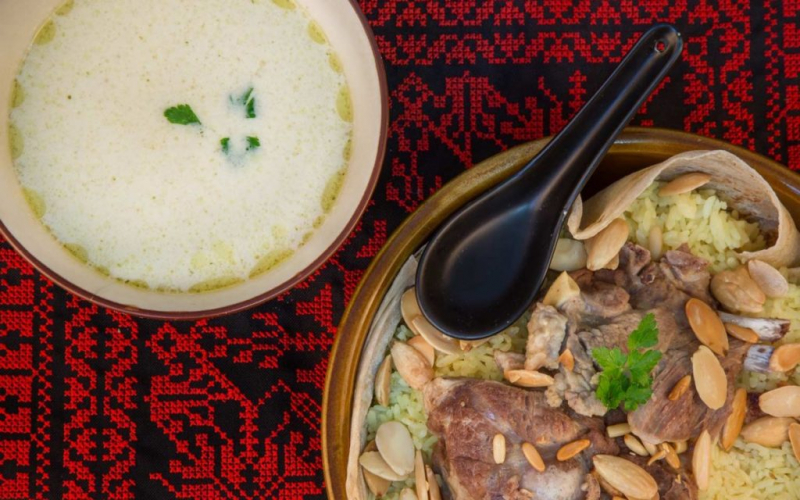
intrepidtravel.com 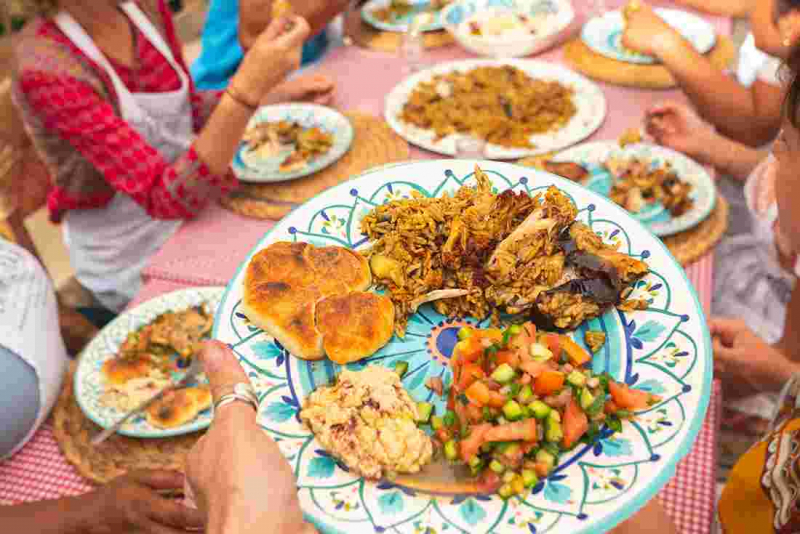
intrepidtravel.com -
In summary, Jordan's tap water is safe to drink and is designated as such; but, before you start sipping, there is a bit more to know about Jordan's water. Due to the region's acute water shortage, significant advancements have been made to enhance the quality of the water that is accessible. While the water is safe to drink and may be used for bathing, brushing teeth, and washing fruits and vegetables, it is best to consume bottled water whenever feasible. Although the water is pure and safe, it has a salty flavor and might occasionally have a strange taste.
One issue to consider when visiting Jordan and drinking water from plastic bottles is the environmental impact of plastic. Jordan has no recycling activities or infrastructure, so plastic bottles wind up in the trash. If you want to stay in Jordan for an extended period of time, carry water purification tablets, boil the water before drinking it, or bring a water bottle with a filter. It is advisable to bring water bottles if you are coming for a brief stay. Before consuming, always double-check that the bottle is firmly sealed.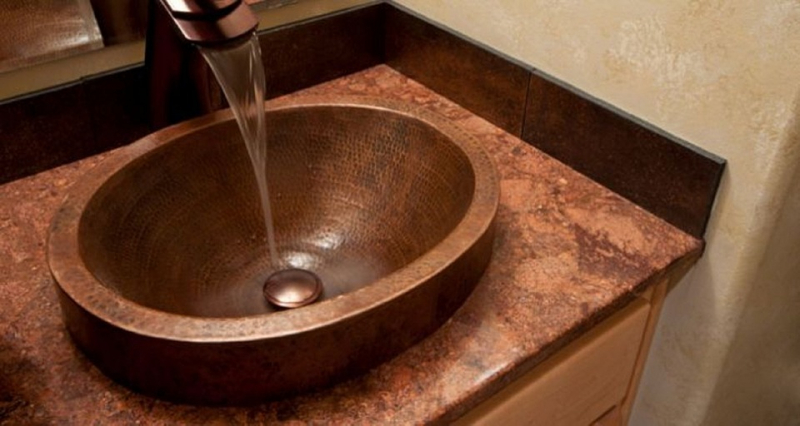
touristjordan.com 
touristjordan.com -
Jordanians like being spontaneous and laid-back, particularly when it comes to arranging arrangements and appointments. People may just turn up and hang around, or they may request you to come over at a specified time, or they may organize a road trip and depart right away. Punctuality, on the other hand, is completely ignored. When you make arrangements with a local and they say they'll be there in "five minutes," you should assume they'll be at least 20 minutes late—so you may as well be late yourself.
Jordanians' investment in social interactions might make Europeans who prefer to keep a safe distance blush. Strangers greet each other like old friends and chat happily about nothing in particular. Passengers-by ask each other for advice or exchange opinions without hesitation, and old friends exchange salutations and cheek kisses, joyful arm-squeezing or back-slapping, and earnest inquiries about health, family, business, and the news. Foreigners who are accustomed to avoiding people and conducting business in stores swiftly and impersonally may appear cold, indifferent, and even snobby. Smiling, learning one or two basic greetings, appreciating those who welcome you, and taking the time to share pleasantries can draw you closer to people faster than anything else.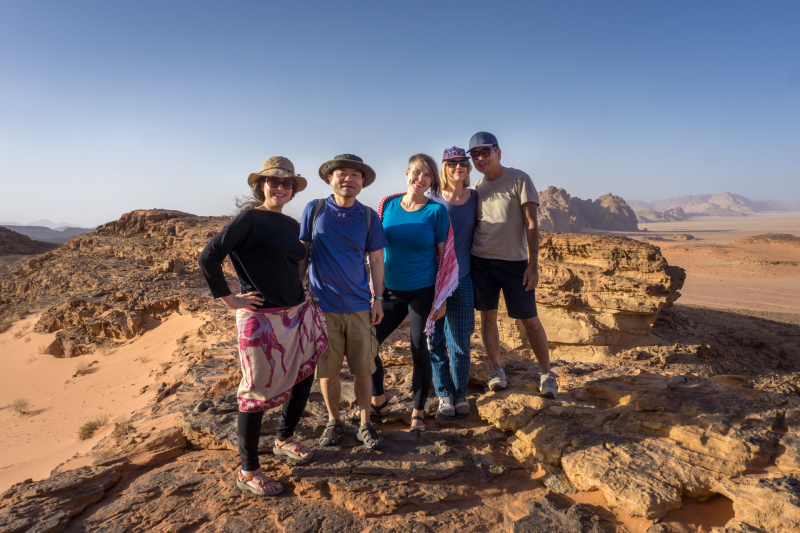
escapingny.com 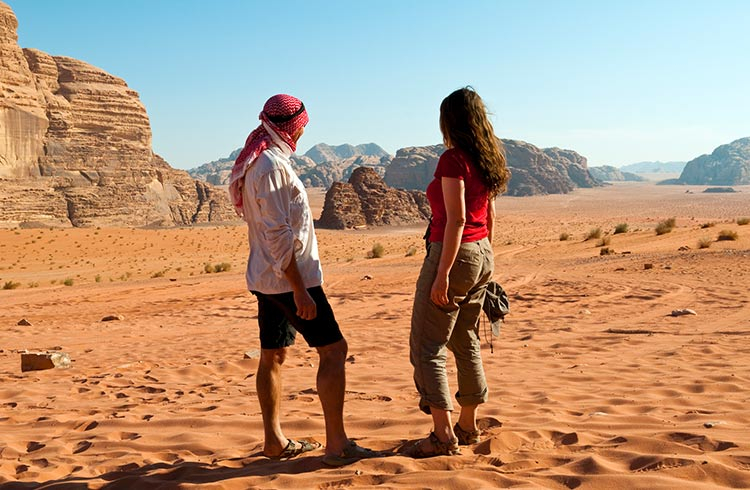
escapingny.com -
Never say no to food is one of the Things About Jordan You Should Know. Jordanians are generous and welcoming people. They take their visitors' comfort seriously and go out of their way to make them feel at ease. They like eating together with everyone. Always smile and accept the meal offer, since informing them you're full would certainly irritate them.
If you accept an invitation to lunch with someone at their house, the first thing you should think about is how to reciprocate your host's kindness. Attempting to provide money would be profoundly disrespectful; instead, bring a memento of your thanks. A kilo or two of delicious pastries delivered to your host as you arrive will be whisked away out of sight and never spoken of again; yet, the gesture will have been appreciated. Otherwise, immediately delivering presents will usually result in embarrassment, because intricate social etiquette requires that such a gift be declined multiple times before acceptance. Instead, you may express your gratitude by giving little children presents such as pencils, tiny toys, notebooks, football stickers, and even picture postcards of your own country, which can endear you to your hosts far more than the monetary value of such items would suggest.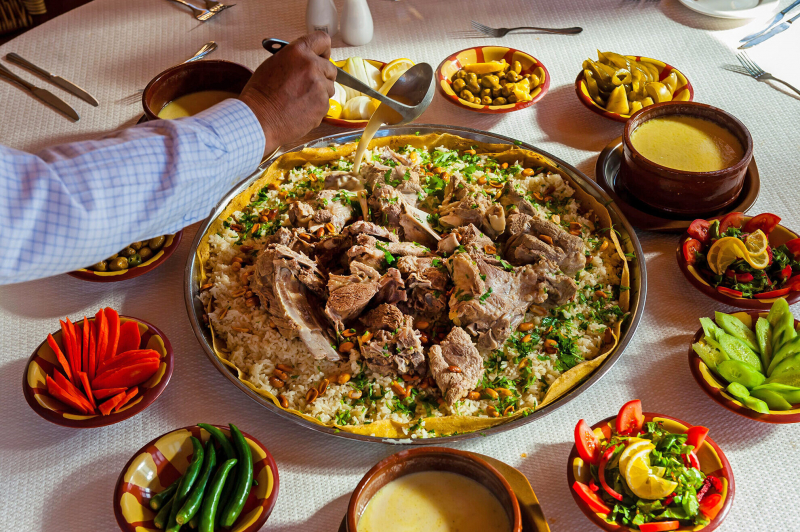
theculturetrip.com 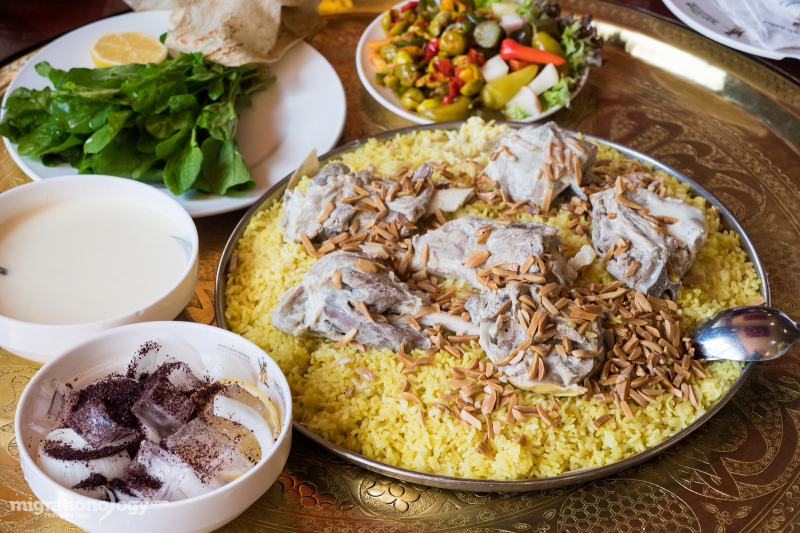
theculturetrip.com -
Jordan is, without a doubt, one of the most picturesque places on the planet. Locals are frequently willing to pose for your pictures as well. Always obtain permission before photographing women in any setting, including the street – and, if you're in or near a family home or tent, obtain permission from the males as well. Some individuals are unconcerned, while others are. Any denial will be delivered politely and cheerfully, but perhaps a bit cautiously-ask again if required to ensure you don't misinterpret a no for a yes.
Couples that travel together should be mindful of Jordanian societal standards. Simply put, public shows of love between men and women are not permitted. Even if you're married, strolling arm-around-waist or arm-over-shoulder, stroking each other's face or body, or kissing each other are likely to be frowned upon — as if you're taking the intimacy of the bedroom into the public arena. It is possible to witness husbands and wives going hand in hand on occasion, although it is uncommon.
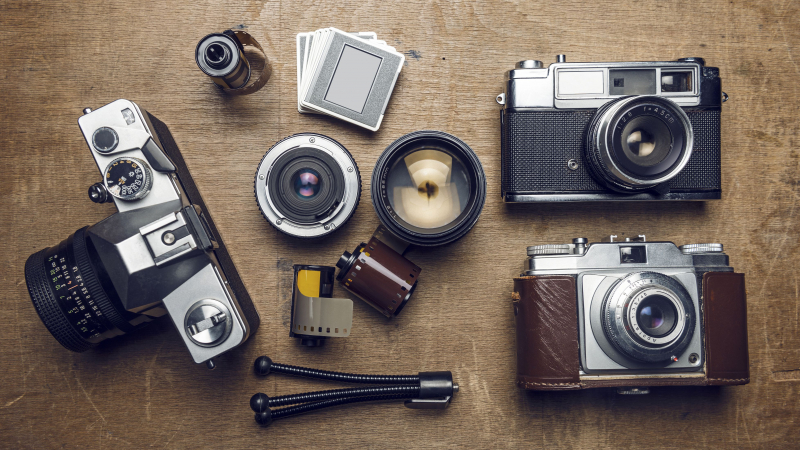
articles.bplans.com 
articles.bplans.com -
Jordan is famed for its yellow taxis, which can be seen everywhere, that is one of the Things About Jordan You Should Know. It is a meter-operated mode of transportation that is inexpensive. Unfortunately, it is common for drivers to take advantage of tourists' gullibility by charging twice, treble, or just faking a faulty meter. To prevent these scenarios, just ask them to turn on the meter and signal that you want to view the numbers on the meter before paying.
When taking a yellow cab in Amman, inform the driver that you will pay at the conclusion of the journey after you are at your location. Once the ultimate destination has been determined, it is critical to ensure that the driver has turned on the meter. Although it is possible to negotiate a price with the driver rather than utilize the meter, it is best to request the meter. Drivers are required by law to utilize the meter, and if they refuse, it is legal to exit and pick another taxi. When taking a cab in Jordan, always request that the meter be turned on.
citysignal.com 
citysignal.com -
Rush hour is inescapable in any city, and certain times of day will always be congested on the roadways. Avoiding rush hour and particular times of day in taxis, if feasible, would help to keep costs down and prevent protracted waits with the meter on. Avoiding heavy traffic in Jordan by paying special attention to public holidays. Furthermore, Thursday evenings in Amman are notoriously packed. Traffic congestion is at its worst between 2 and 5 p.m. It is quite hard to locate a cab at that hour, and if you do, the taxi driver will frequently refuse to take you anywhere in order to avoid gridlock. Always plan your moves across the city ahead of time, or opt to walk to nearby places during certain hours.
Joining a group trip is one method to secure safe travel at a fixed fee. Joining a group for certain sites and activities like as Petra, Wadi Rum, or the Dead Sea is a terrific opportunity to interact with other travelers while also finding comfortable and economical transportation. Look into Petra and Dead Sea excursions.

touristjordan.com 
touristjordan.com -
Festivals are an important aspect of Jordan's culture and community. Various yearly festivals in Jordan, ranging from the arts to theatre, dancing, and gastronomy, help to bring people and tourists together in a number of ways. Here are some of Jordan's yearly festivals.
Aqaba Traditional Arts Festival is an annual event that takes place in the maritime city of Aqaba every February. The Jordanian Aqaba Traditional Arts Festival promotes and maintains the Bedouin people's and community's culture. The event features handcrafted handicrafts manufactured by Bedouins, as well as preserving and honoring Bedouin customs.
Azraq Festival, Azraq is a tiny hamlet west of Amman that hosts an art and cultural festival every year. This festival in Jordan is held to promote Azraq's culture, art, and handcrafted products, as well as to share the community's culture. The colorful celebration, while being one of Jordan's smallest festivals, draws a large crowd and has plenty of music, local food, and dancing, as well as the promotion of art and crafts.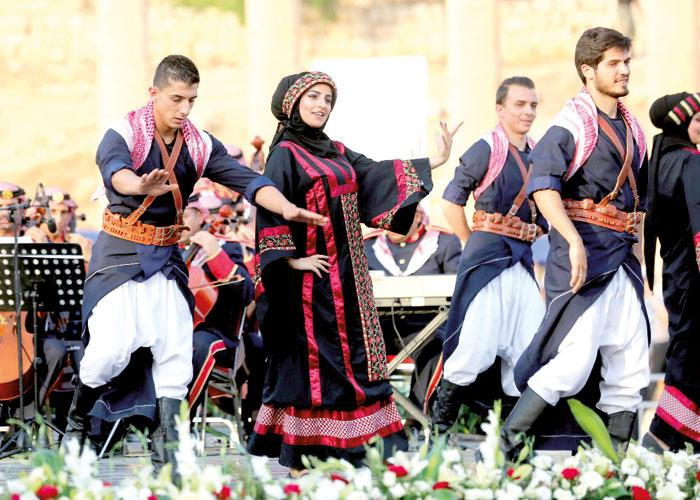
wonderstourism.com 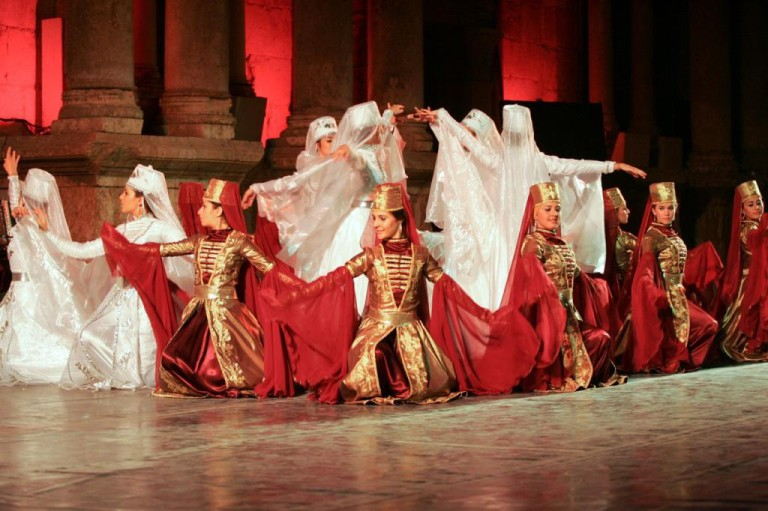
wonderstourism.com




















